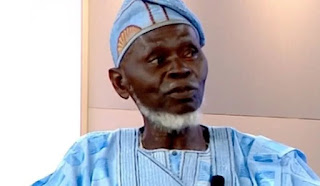Born on the 12th of June, 1955, in Lagos, Nigeria, Lamidi Apapa is a Nigerian politician, philanthropist, and businessman. He is the former chairman of the Oyo chapter of the Labour Party and the current national chairman of the same party, a position he attained following the suspension of ex-national chairman, Julius Abure.
Early Life and Education
Lamidi Apapa's educational background laid the foundation for his future endeavors and equipped him with the skills necessary to navigate the complex world of politics.
Political Career
Apapa's dedication and strategic thinking propelled him to greater heights within the party. He became a prominent figure, known for his eloquence and ability to connect with people from all walks of life. His approach to politics at the grassroots level also won him the respect and support of his constituents.
In the early 1990s, Lamidi Apapa contested and won a seat in the Nigerian House of Representatives, representing his constituency with utmost dedication and passion. During his tenure, he became a champion for social justice, education reform, and infrastructural development. Apapa's unwavering commitment to his constituents earned him a reputation as a leader who truly cared about the welfare of the people.
Apapa's exceptional leadership qualities did not go unnoticed either. In 2003, he was appointed Minister of State for Works and Housing, where he played a pivotal role in the execution of numerous infrastructure projects across the country. Under his stewardship, Nigeria witnessed significant improvements in road networks, bridges, and housing developments.
Legacy and Impact
The foundation has transformed the lives of countless young Nigerians, empowering them to break free from the shackles of poverty and achieve their dreams. Lamidi Apapa's strong commitment to education is a reflection of his belief that investing in human capital is the key to sustainable development. He has been an advocate for gender equality and women's empowerment throughout his career, most notably showing support for initiatives aimed at eliminating gender-based discrimination and promoting the participation of women in politics and leadership roles.


Post a Comment